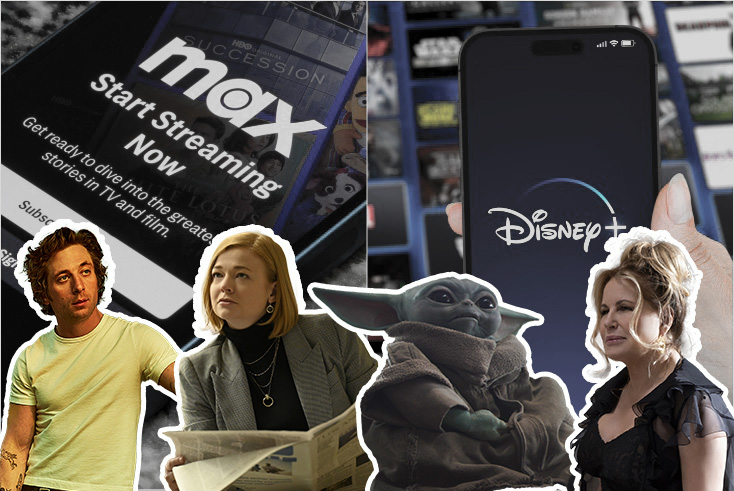Disney and Warner Bros Discovery’s bundle: Is streaming turning into cable?

Disney and Warner Bros Discovery (WBD) have announced a streaming bundle, inclusive of Disney’s streaming services Disney+ and Hulu, as well as WBD’s streaming service Max (itself a merger of HBO Max and Discovery+).
The bundle will be available in the US in the summer, although no date has yet been confirmed. No plans were immediately announced to expand the bundle programme to other markets.
Both ad-free and ad-supported plans will be offered and consumers will be able to purchase the bundle online via the Disney+, Hulu and Max websites.
Together, the bundle will offer consumers access to a swathe of entertainment content. Between the three services, content from ABC, CNN, DC, Discovery, Disney, Food Network, FX, HBO, HGTV, Hulu, Marvel, Pixar, Searchlight, Warner Bros and more will be available in a single package.
Price points have not been divulged. Spokespeople for the companies said additional details “will be shared in the coming months”.
In a statement, Joe Earley, Disney Entertainment’s president, direct-to-consumer, said the new partnership “puts subscribers first” by giving them access to “three massive libraries featuring the very best brands and entertainment in streaming today”.
Analysis: A cable redux?
Two major entertainment conglomerates bundling streaming services has a familiar ring to it.
The development of cable packages also began with multiple entertainment channels partnering on a package subscription offer to give consumers more channels at a higher price point. Eventually, the packages ballooned to the point where consumers were paying more despite not wanting or watching a great deal of channels included in the package.
Consumers then began eschewing cable deals for streaming services, which offered a better consumer proposition: high-quality content online for a lower price.
Now, it appears, streaming is taking a big step into cable package territory. While no pricing has been announced yet for the Disney, Hulu and Max bundle, one can expect it to cost more than any one individual service but less than paying for all three separately.
For both Disney and WBD, the strategy appears to be aimed at reducing churn and improving overall subscription numbers. JB Perrette, CEO and president of global streaming and games at WBD, said he expects the bundle to “help drive incremental subscribers and much stronger retention”.
Alternative consolidation
At last year’s Future of TV Advertising Global event, Disney’s president of global advertising, Rita Ferro, told the industry to expect consolidation in the streaming market.
“There’s no way that all of these players will continue to exist without multiple revenue streams,” she said.
While consolidation can take the form of mergers and acquisitions, such as the ongoing negotiations between Sony Pictures Entertainment and Apollo Global Management to purchase Paramount Global, it can also take the form of bundling products together à la cable.
As Ferro alluded, there are and have been too many subscription-based streaming services for each to survive, given the costs associated with producing and licensing content.
Since Ferro’s interview, both Disney and WBD have taken steps to rapidly turn their streaming services — which had been losing billions of dollars — profitable by cutting costs and raising subscription prices. According to a recent report from Bloomberg, WBD is considering further cost-cutting measures and price hikes for Max.
In its latest earnings release, Disney announced its direct-to-consumer (DTC) business earned a profit for the first time in Q1. Its combined streaming businesses (inclusive of Disney+, Hulu and ESPN+) shrunk its operating loss to $18m from $659m in Q1 2023.
WBD announced that it had turned a profit on its DTC segment in 2023 — the first media conglomerate to do so. In Q1 2024, adjusted Ebitda for WBD’s DTC segment had increased 72% year on year, thanks in part to a “modest” increase in revenue and a decline in operating expenses.
Expansion to other markets?
Disney and WBD only announced the bundle for the US market. For other markets, such as the UK, it’s not clear whether it could some day be greenlit.
In the UK, as well as some European territories, Sky has a first-rights deal in place with WBD on HBO content. Sky has had such content deals with the company since 2014, the most recent of which expires in 2025. It is not clear whether WBD will seek to renew such an agreement, although Sky leadership has previously alluded to a desire to keep the relationship in place.
In other European markets, WBD is moving to roll out Max (previously HBO Max was still operating in those markets).
Disney has also not launched Hulu outside the US and so any attempt to institute a similar bundle in other markets may run into limitations around how much content is available for that streaming service as well as HBO.



